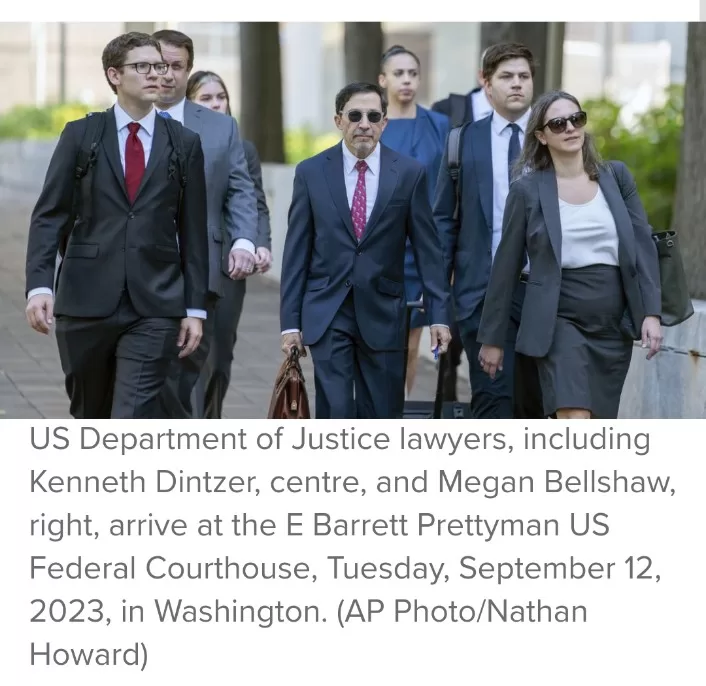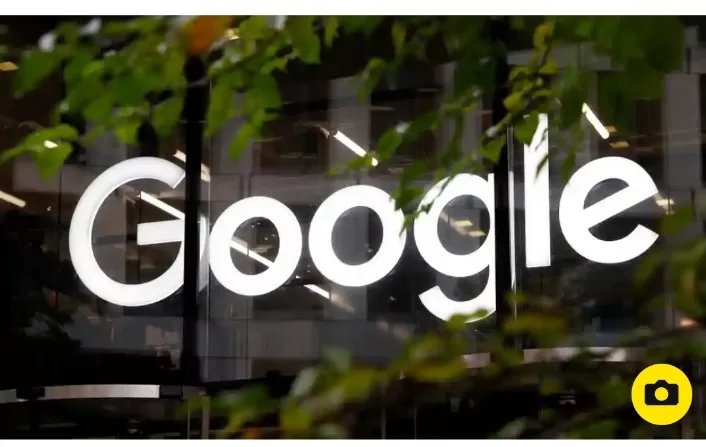In a pivotal legal battle, the Department of Justice has initiated a colossal antitrust trial against Google, accusing the tech giant of leveraging its dominance in the internet search arena to stifle competition and thwart innovation. The trial, set to unfold over the next 10 weeks, will scrutinize whether Google manipulated the market by establishing its search engine as the default choice across a multitude of platforms and devices.
Kenneth Dintzer, the lead litigator representing the Justice Department, asserted, “This case is about the future of the internet and whether Google’s search engine will ever face meaningful competition.” These proceedings mark the most significant antitrust trial in the United States since the last quarter-century.
The trial will be presided over by US District Judge Amit Mehta, with a verdict expected in early 2024. Should the court determine that Google violated antitrust laws, a subsequent trial will convene to determine appropriate measures to restrain the Mountain View, California-based corporation.
Top-tier executives from Google and its parent company, Alphabet, are slated to provide testimonies during the trial. Among them is Alphabet’s CEO, Sundar Pichai, who succeeded Google co-founder Larry Page four years ago. Additionally, court documents hint at the possibility of Eddy Cue, a prominent Apple executive, being called to the witness stand.
The antitrust lawsuit was filed against Google nearly three years ago, during the Trump administration, alleging that the company exploited its dominance in internet search to gain an unfair edge over competitors. Government attorneys assert that Google maintains its supremacy by means of a form of financial enticement, spending billions annually to secure its status as the default search engine on iPhones and web browsers like Apple’s Safari and Mozilla’s Firefox.
Dintzer stated, “Google pays more than $US10 billion ($15.6 billion) per year for these privileged positions,” highlighting that Google’s contracts effectively inhibit rivals from matching its search quality and monetization, particularly on mobile devices. He contends that this arrangement has sustained for over a decade, consistently favoring Google’s interests.
Furthermore, Dintzer stressed the critical role user data plays for a search engine, asserting that it is “the oxygen” for such platforms. Given Google’s market dominance, Dintzer contends that Google’s search and ad products consistently outperform rivals.
The litigants argue that Google’s anticompetitive tactics have hindered Apple from developing its own search engine. Dintzer pointedly alleged that Google exerted pressure on Apple by insisting its search engine hold a default position on Apple devices, conditioning revenue-sharing payments on this agreement.
Dintzer emphasized, “This is not a negotiation. This is Google saying: Take it or leave it.”
In a surprising revelation, Dintzer accused Google of destroying documents over the years and attempting to shield others under attorney-client privilege in an effort to keep them from becoming evidence in court. “They destroyed documents for years,” Dintzer claimed. “They turned history off, your honour, so they could rewrite it in this court.”

Google, on its part, maintains that it faces robust competition despite its commanding position, citing rivals ranging from Microsoft’s Bing to platforms like Amazon and Yelp, where consumers can seek advice on purchasing decisions.
The outcome of this high-stakes trial could significantly impact Google’s future, potentially leading to restrictions that diminish its power. Among the possibilities is the cessation of payments to Apple and other companies to ensure Google remains the default search engine on various devices.
The parallels between this antitrust case against Google and the 1998 case against Microsoft are evident. In the latter, regulators accused Microsoft of compelling computer manufacturers to feature its Internet Explorer browser alongside its dominant Windows operating system, which led to the demise of the once-popular browser Netscape.
Several members of the Department of Justice’s legal team involved in the Google case were also part of the Microsoft investigation.
The trial has the potential to redirect Google’s trajectory, as was the case with Microsoft, which struggled to adapt to the changes brought about by internet search and smartphones, while Google capitalized on these shifts to evolve into a technology juggernaut.







